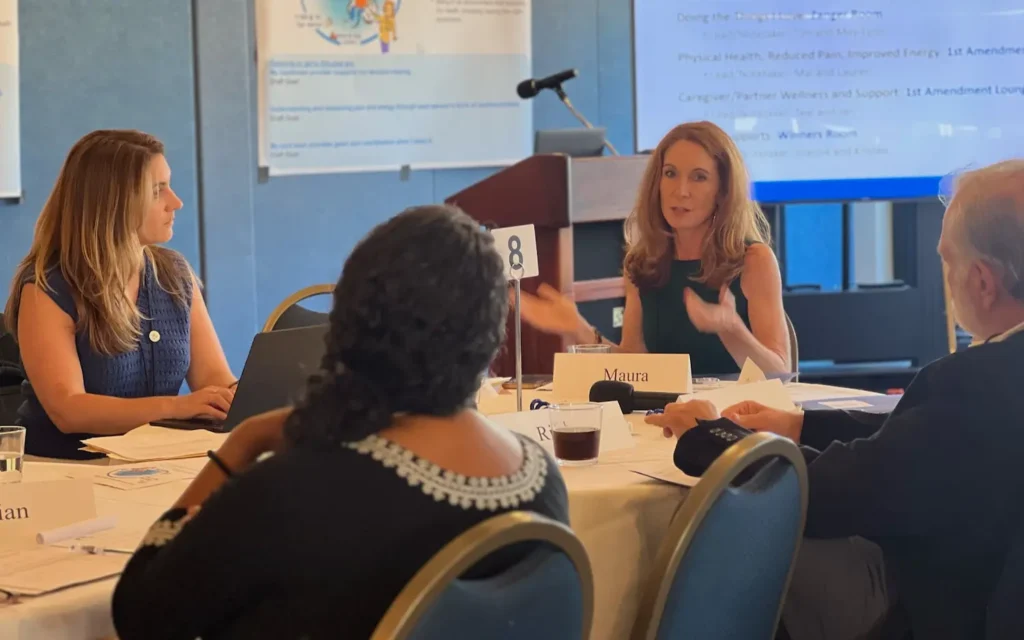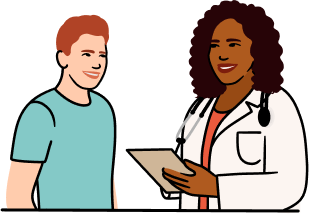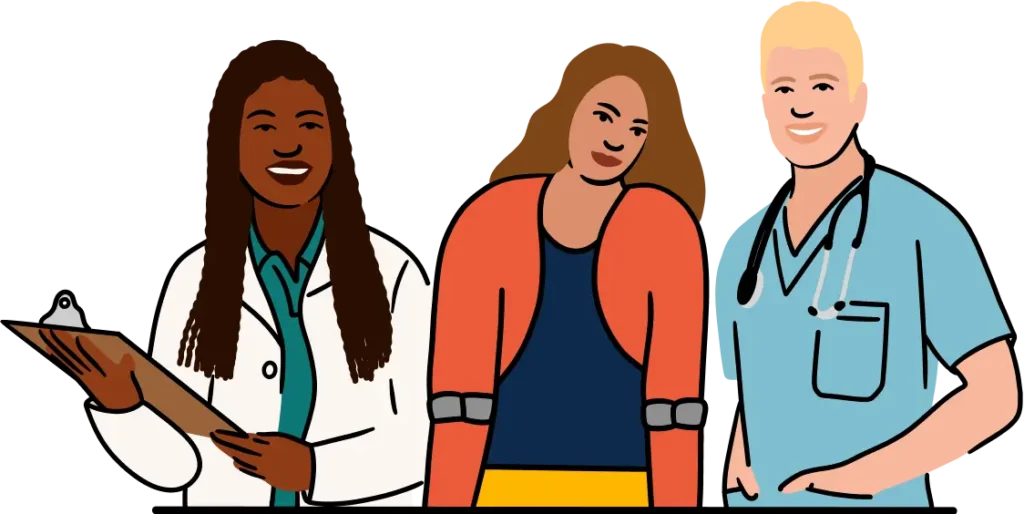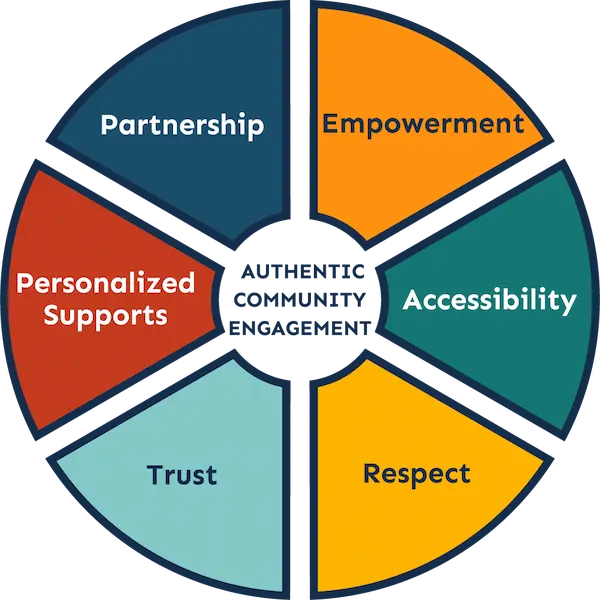Centering People with IDD
Authentic Community Engagement
Our approach to ensuring the healthcare system embraces the diverse needs of the IDD community through genuine engagement and co-creation with individuals of lived experience.
Changing How the IDD Community is Included in Creating Healthcare Solutions
The experiences and needs of people with IDD are routinely excluded from healthcare decision-making. However, the system will only fully support the diverse needs of this population when their input is actively sought and prioritized.
IEC developed principles of authentic engagement to ensure that the perspectives of people with lived experience remain the primary focus of our work. These perspectives must be fully expressed, heard, respected, and honored so that community members feel empowered to lead the development of healthcare solutions confidently.
- 1 in 20 Americans have IDD
- 20x: the order of magnitude by which people with IDD are undercounted in insurance claims and electronic medical records
Why This Matters
People with IDD too often face unmet healthcare needs, lower quality care, lack of preventive services, and higher rates of chronic conditions and preventable deaths. Turning this around requires a genuine commitment to engaging the IDD community every step of the way.
Authentic engagement that builds trust by turning input into action is critical for designing care models, research, policies, and programs that improve well-being. This work takes significant investment but pays dividends by ensuring we identify the right issues and create inclusive solutions.

Authentic Community Engagement Highlights
2023
Developed principles of authentic engagement to ensure that the perspectives of people with lived experience remained the primary focus of all IEC programs.
Principles of Authentic Community Engagement
The path to better health outcomes starts by valuing the IDD community’s expertise. Our Principles of Authentic Community Engagement paper was created with the perspectives of more than 170 people, and it outlines six principles, provides examples of how the principles work in practice, and offers practical strategies for scaling.
The principles include:
- Partnership
- Empowerment
- Accessibility
- Respect
- Trust
- Personalized Supports
Making Healthcare Better and Safer for People with IDD
IEC partners with people with lived experience of IDD and healthcare professionals to change the way care is taught, delivered, and paid for by creating new programs that center patients.
The Engagement Principles are based on engagement recommendations (Shore & Benevides, 2018) and were adapted during the IIDDEAL Project (Leads: Teal Benevides and Mai Pham; Eugene Washington PCORI Engagement Award, EASC-IDD-00241). We gratefully acknowledge project team members May-Lynn Andresen, Madelyn Bahr, and the IIDDEAL Core Team and Advisory Council for their efforts to create authentic engagement spaces.





